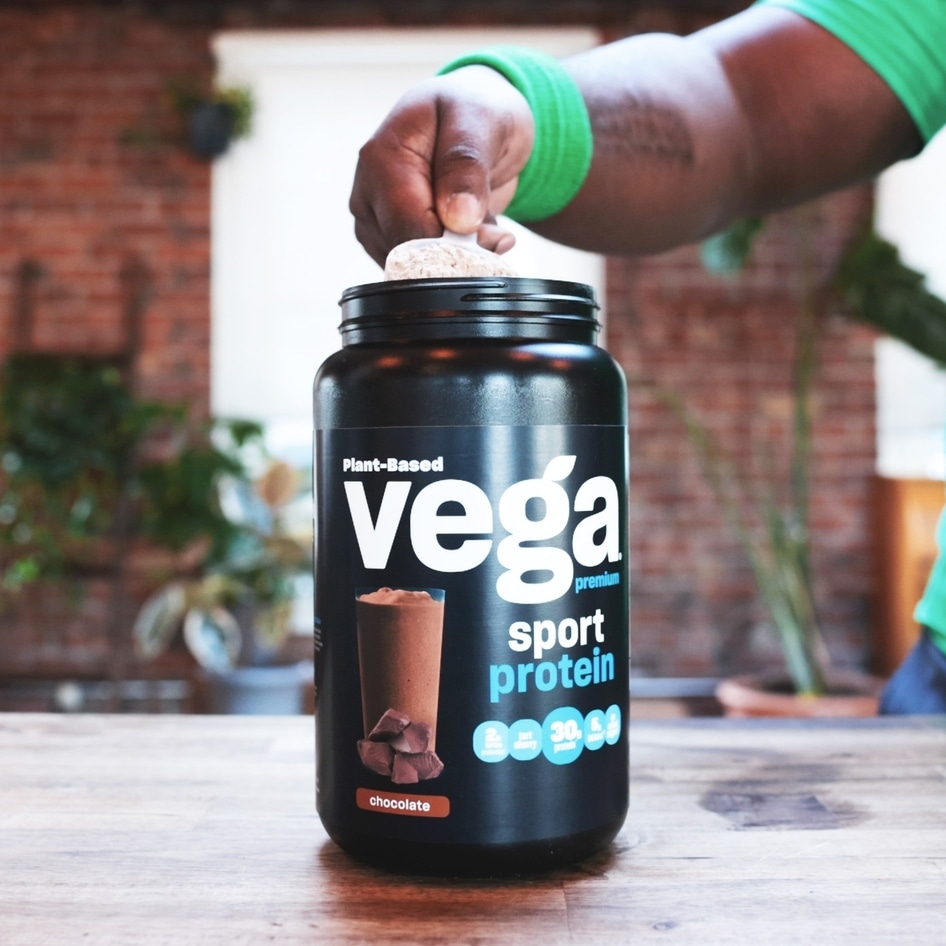Not long ago, creatine was seen as the secret weapon of bodybuilders and powerlifters. It’s something you’d find tucked into the gym bag of a competitive athlete, not on the shelf of a casual exerciser or wellness enthusiast. But times have changed. In the last decade, creatine has gone mainstream. It’s now one of the most widely used and researched supplements, embraced not just for its muscle-boosting benefits, but for its surprising effects on brain function, energy, and even mood.
It’s not just the protein-shake crowd taking notice. From weekend warriors to people simply trying to support cognitive health or fight mental fatigue, more and more everyday users are adding creatine to their routines. This includes a rapidly growing number of people following plant-based diets.
So, this raises an important question: should you jump on the creatine bandwagon if you follow a vegan diet? Let’s dive in.
What is creatine?
Creatine is a naturally occurring compound that plays a role in how your body produces energy. It’s most abundant in your muscles, where it helps generate adenosine triphosphate (ATP)—the molecular fuel your cells use for movement, brain activity, and pretty much everything else that requires energy.
 Unsplash
Unsplash
Your body makes creatine from three amino acids: arginine, glycine, and methionine. While we can produce enough on our own to survive, we also typically get a significant boost from dietary sources—primarily meat and fish, which are naturally rich in creatine. For those on a plant-based diet, though, obtaining a dietary source becomes a little more challenging.
“Since it is found in muscles, some people acquire creatine in the diet by eating animal products,” explains Anna Herby, DHSc, RD, CDE, nutrition education specialist for the Physicians Committee for Responsible Medicine. “Plants don’t contain creatine, but they do contain the three amino acids that the body uses to build creatine: glycine, arginine, and methionine. These amino acids are found in plant protein sources like legumes, nuts, and seeds.”
Should vegans be taking creatine?
Because plant foods contain virtually no creatine, people who eat a vegan or vegetarian diet tend to have lower baseline levels in their muscles and brains. A study published in 2023 in Advances in Nutrition noted that vegan athletes had notably lower muscle and blood creatine concentrations than their omnivorous peers.
BECOME A VEGNEWS VIP: Get exclusive product deals, freebies, and perks galore!
“While meat-eaters have both the creatine that their body makes and the creatine they eat, vegans only have the creatine the body makes,” Herby explains. “Since vegans start with lower levels, they may see more of a benefit from taking a creatine supplement than someone who is eating animal products.”
Benefits of creatine for vegans
While creatine is often associated with athletic performance, experts are now highlighting its broader potential beyond the gym. “The research on creatine has centered mostly around athletes and muscle building, but more studies are starting to look at non-athletes,” Herby explains.
 Unsplash
Unsplash
1 Enhancing energy production
The most well-documented benefit of creatine is its ability to improve performance in high-intensity, short-duration activities such as sprinting or weight lifting. Given the strong body of evidence supporting creatine’s effectiveness, the International Society of Sports Nutrition considers it the most effective nutritional supplement for athletes looking to boost high-intensity performance and build lean muscle.
Creatine increases the amount of phosphocreatine stored in your muscles, which your body can rapidly convert to ATP during exertion. “In this way, it can help your muscles to work harder in quick, intense situations—like weight training or sprinting,” Herby says. “The harder your muscles can work before fatigue, the stronger they may get.”
For vegans, who typically have lower starting levels, this benefit might be even more pronounced. A study published in 2003 in Medicine & Science in Sports & Exercise showed that vegetarians who supplemented with creatine experienced greater gains in strength and endurance compared to omnivores. In other words, supplementation helped them “catch up” and even outperform.
 Unsplash
Unsplash
2 Supporting cognitive function
Beyond the gym, creatine has gained attention for its potential to support brain health. It plays a vital role in cellular energy within the brain, especially during mentally demanding tasks. According to a 2020 review, vegetarians who took creatine supplements experienced improvements in cognitive function.
“Creatine supplementation may help improve recovery in the brain and spinal cord after a concussion or spinal cord injury. It may also help with cognitive function,” Herby says. “Unlike with muscle strength, vegans and omnivores would likely gain equal benefit from supplementation when it comes to neurological health.”
 Getty
Getty
3 Improving mood and reducing mental fatigue
Ever feel mentally drained for no clear reason? Creatine might help with that, too.
A systematic review published in 2024 noted evidence that creatine may reduce mental fatigue and improve mood and cognitive performance, especially in individuals with low baseline creatine. Considering that vegan diets eliminate natural dietary creatine, this kind of support could be beneficial during periods of stress or cognitive overload.
Is creatine vegan?
Most creatine supplements are vegan. Although creatine itself is found only in animal tissue, the creatine sold in powder or capsule form is nearly always synthetic. It’s typically produced in labs using a combination of chemical synthesis and microbial fermentation, involving no animal-derived ingredients.
Creatine is one of the most thoroughly researched supplements, and it’s overwhelmingly considered safe when taken as directed. Side effects are rare and usually mild—things like bloating or minor digestive discomfort, often from taking too much at once. There are no known risks specific to vegans.
Despite its proven benefits, creatine supplementation comes with a caveat: quality and safety can vary widely between products. “Because supplements are not regulated by the FDA, they may not truly contain what’s on the label, and they are at risk for contamination,” Herby warns. In one study, researchers found that 44 percent of creatine supplements exceeded safe levels of contaminants like mercury and lead.
 Adobe
Adobe
“If you do choose to take a creatine supplement, be sure to pick a brand that has the highest quality control measures. Look for a third-party, independently tested supplements, or a USP verification on the label,” Herby suggests.
Are there vegan foods that contain creatine?
In short: no. While some vegan foods like tempeh, tofu, and edamame can provide the amino acids needed for the body to synthesize creatine, they do not contain creatine itself. Unlike nutrients such as iron or B12, which have some plant-based counterparts or fortified sources, there’s no practical vegan dietary source of creatine.
Before adding a supplement to your routine, Herby recommends considering dietary strategies first. “For vegans, it’s important to remember that the body can make its own creatine and increasing plant sources of protein may be a good option to try before turning to a creatine supplement,” Herby says.
For more plant-based stories like this, read:
JUMP TO ... Latest News | Recipes | Guides | Health | Subscribe









